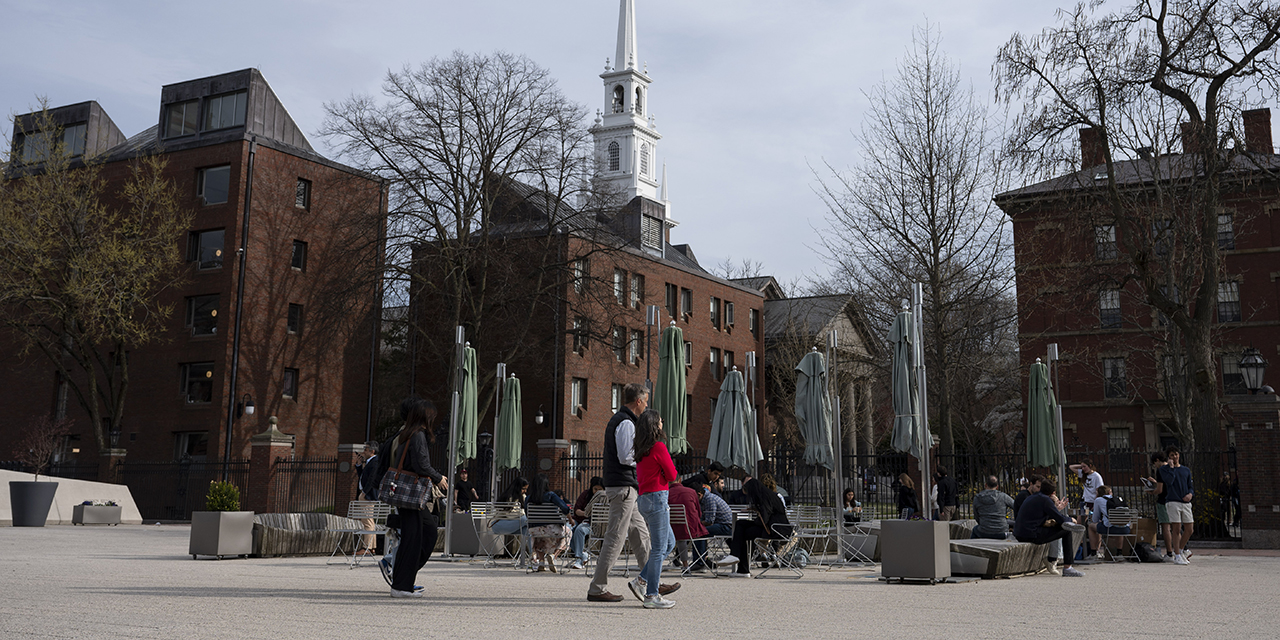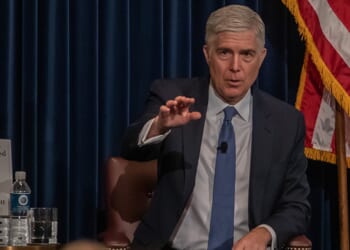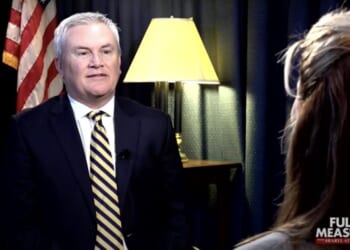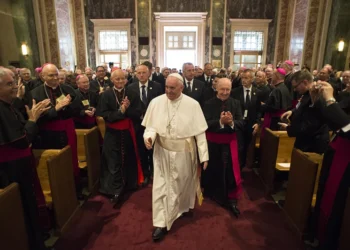
Last week, reports surfaced that the Trump administration was directing the Internal Revenue Service to revoke Harvard’s tax-exempt status under Section 501(c)(3) of the Internal Revenue Code. This news followed a social-media posting from President Trump levying precisely this threat, though government officials were quick to emphasize that “forthcoming actions by the IRS will be conducted independently of the president.”
The tax-exemption gambit is just the latest escalation in the administration’s feud with elite American universities over their DEI programs, lack of ideological diversity among faculty and students, and hostile environment for Jewish students. The administration has also targeted Harvard’s federal funding and international student pipeline.
Finally, a reason to check your email.
Sign up for our free newsletter today.
Depending on how exactly the administration frames its case in seeking to strip Harvard’s status, it may well be on firm legal footing. But that doesn’t make it a wise policy.
The legal case against stripping Harvard’s tax-exempt status isn’t as clear-cut as the administration’s critics would like to believe. Under black-letter law—well-established legal rules—“eradicating racial discrimination in education” is a “compelling governmental interest,” allowing the federal government to revoke a university’s tax exemption even in the face of obvious First Amendment concerns. Less than two years ago, the Supreme Court ruled that Harvard had been illegally discriminating on the basis of race through its race-conscious admissions system, and ongoing practices at the school—including its treatment of Jewish students—could well give the government a case against the nation’s oldest university.
The seminal case on race and university tax exemption is the Supreme Court’s 1983 decision in Bob Jones University v. United States. At issue was whether the IRS could deny tax-exempt status to Bob Jones University, a conservative, evangelical Christian college in South Carolina that prohibited interracial dating and marriage—or even the advocacy of same—based on its interpretation of biblical scripture. To be sure, that interpretation is neither mine nor that of many of my fellow Christians, but the trial court and Supreme Court agreed that the school’s policy rested on “a genuine [religious] belief.” The school leadership later changed its interpretation and revised its policy, but not until 2000.
Bob Jones argued that the IRS’s decision both exceeded the agency’s authority and violated the school’s First Amendment right to religious freedom. The Supreme Court disagreed. Chief Justice Warren Burger, writing for an eight-justice majority, argued that tax-exempt institutions must serve a charitable purpose beneficial to the public interest, and that practices conflicting fundamentally with established public policy—such as racial discrimination—disqualify institutions from enjoying tax-exempt status.
In Burger’s view, it didn’t matter that the government’s ruling violated a clear First Amendment right to religious freedom (as it did, under the Court’s jurisprudence of the day). The cause of “eradicating racial discrimination” was compelling, thus meeting the highest bar that the government must cross to abrogate a constitutional right.
It’s hardly surprising that the Court took a permissive stance toward federal efforts to wipe out the vestiges of racial segregation, which remains one of the great stains on our nation’s history. Beyond the university context, federal authorities were clearly nervous about private secondary schools making an end-run around racial integration. In fact, Bob Jones’s co-litigant was Goldsboro Christian Schools, a North Carolina academy that expressly admitted to discriminating on the basis of race in admissions.
Still, it’s not hard to find fault with the Bob Jones decision today. The First Amendment issues would play out differently under modern jurisprudence. The current Court would pay a lot more attention to the actual text of the revenue code, which affords broad, value-neutral provision of tax-exempt status to any organization that is “religious, educational, or charitable.” The Bob Jones opinion conflates “educational” and “charitable,” even though the statute makes each a basis for tax-exempt status; places significant emphasis on open-ended delegation of discretion to the executive branch to enforce the tax laws; and infers congressional intent consistent with the IRS ruling based on the legislature’s failure to act to override the agency. It’s a safe bet that most of our current justices would reject this sort of loose statutory interpretation and prefer the more rigorous reading given by then-Associate Justice William Rehnquist in his solitary dissent.
The bigger problem with Trump’s proposal lies with its policy implications. Threatening Harvard’s tax-exempt status is a step too far—one that carries major risks extending well beyond academia into the broader nonprofit sector.
To understand why tax exemption shouldn’t be used in the way the Trump administration proposes to do here, consider that Section 501(c)(3) of the tax code is not limited to educational establishments. Giving executive branch bureaucracies expansive power to determine tax-exempt status poses a real risk not only to universities—which almost monolithically lean left—but to the panoply of other nonprofit institutions that fall under the tax code.
Conservatives learned the risks in placing too much tax-exemption discretion with the executive branch bureaucracy when the Obama-era IRS held up approvals for hundreds of nonprofit groups, including Tea Party-affiliated organizations hostile to the president’s agenda, in the run-up to the 2012 election. As long as Congress precludes political actors from receiving tax-exempt status, the sorts of inquiries that allowed President Obama’s team to place a thumb on the political scale will be tricky enough to ward off.
Do conservatives, then, really want to expand the level of discretion given to tax bureaucrats answerable to the president? Do they want to allow an amorphous concept like “eradicating racial discrimination” to be used by Republican administrations to yank tax-exempt status from groups that support Palestine—or by Democratic administrations to do so for those supporting Israel? I think not. And I don’t think the Supreme Court wants to be the “tax exemption arbiter,” either.
That’s why I believe that Harvard will ultimately prevail if the Trump administration decides to follow this course. But even though the executive branch hasn’t enforced Bob Jones-style tax-exemption rules against educational institutions in the more than 40 years since that case was decided, it remains good law. So a Harvard victory would likely require the Supreme Court, if it opines on the merits, to determine that Harvard hasn’t been racially discriminating after all, to limit Bob Jones’s holding to its specific facts—or to overrule its prior decision entirely. Until then, things may get interesting.
Photo by Mostafa Bassim/Anadolu via Getty Images
City Journal is a publication of the Manhattan Institute for Policy Research (MI), a leading free-market think tank. Are you interested in supporting the magazine? As a 501(c)(3) nonprofit, donations in support of MI and City Journal are fully tax-deductible as provided by law (EIN #13-2912529).
Source link














